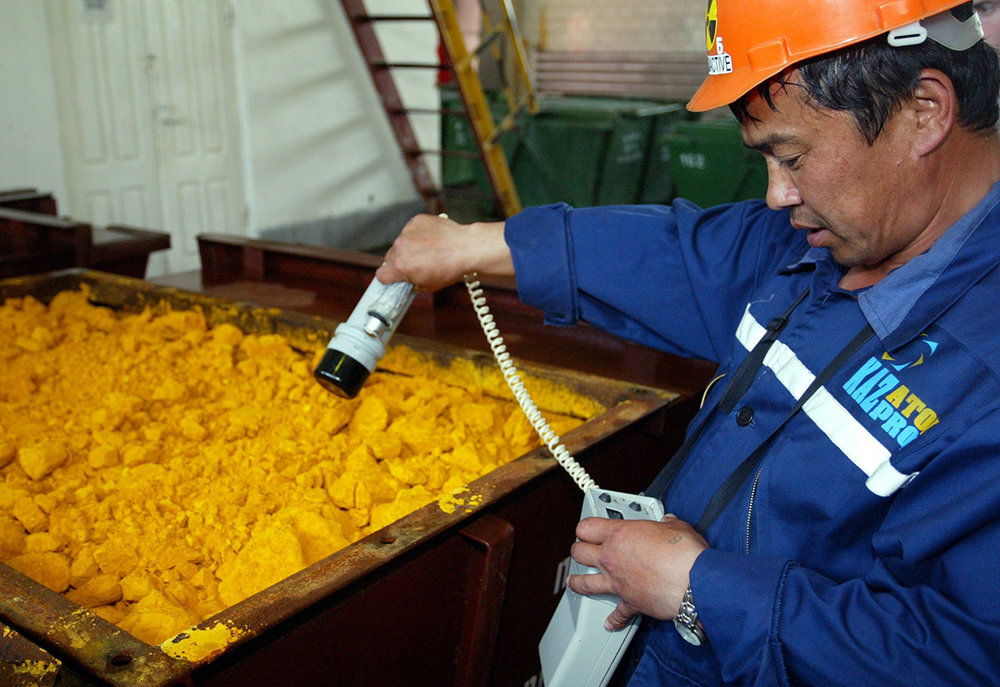Russia’s state atomic energy company Rosatom has agreed to help Kazakhstan with transporting low-enriched uranium, needed to maintain the international uranium bank run by the International Atomic Energy Agency (IAEA).
“IAEA and Russia sign contract for the transport of low enriched uranium (LEU) & equipment through Russian territory to and from IAEA LEU Bank in Kazakhstan,” read a statement posted to the IAEA’s twitter feed following an agreement reached in Vienna on Monday on the sidelines of the IAEA General Conference.
According to the agreement, Tenex will provide a range of logistics services for organizing the transit of LEU across Russia. The first batch of LEU is expected to arrive in Kazakhstan sometime next year.
“The signed document will ensure the movement of nuclear materials and more efficient execution of the IAEA functions as a legislator and the main technological organization in the nuclear industry,” said Rosatom’s head, Alexei Likhachev, on Monday, according to TASS.
In 2017, the IAEA commissioned what is the world’s first LEU bank, located at the Ulba Metallurgical Plant in Oskemen in eastern Kazakhstan. Up to 90 metric tons of LEU, suitable for making fuel to feed a light water nuclear reactor, can be stored at the bank. The facility is supposed to ensure guaranteed deliveries of nuclear fuel to different countries in case of violation of the existing mechanisms of these supplies.
According to the agreement signed by IAEA and the government in Astana, the IAEA is responsible for acquiring, delivering, and maintaining LEU for the bank. The IAEA is responsible for expenses incurred for the import and export of the material, as well as taxes, fees, and duties, while Kazakhstan pays for direct storage and internal movements of uranium.
As part of the former Soviet Union, Kazakhstan once had one of the world’s largest nuclear arsenals and was the primary testing ground for Soviet nuclear weapons. Today the sovereign country is a leading uranium producer and controls nearly 40 percent of world uranium production.
The government in Astana is staunchly against the use of nuclear weapons, given the country’s sordid history with testing. Kazakhstan is a staunch supporter of global nonproliferation efforts and is a member of the Nuclear Non-Proliferation Treaty, the Comprehensive Test Ban Treaty and the Central Asian Nuclear Weapon Free Zone.







 Iran's senior military leaders described the drone and missile attack on Israel on April 14 night as “successful".
Iran's senior military leaders described the drone and missile attack on Israel on April 14 night as “successful".
 Azerbaijan officially unveiled the logo for the upcoming 29th session of the Conference of the Parties to the United Nations Framework Convention o...
Azerbaijan officially unveiled the logo for the upcoming 29th session of the Conference of the Parties to the United Nations Framework Convention o...
 Iranian President Ebrahim Raisi warned Israel that it would face a "real and extensive" response if it makes any "mistake" following Tehran’s missi...
Iranian President Ebrahim Raisi warned Israel that it would face a "real and extensive" response if it makes any "mistake" following Tehran’s missi...



